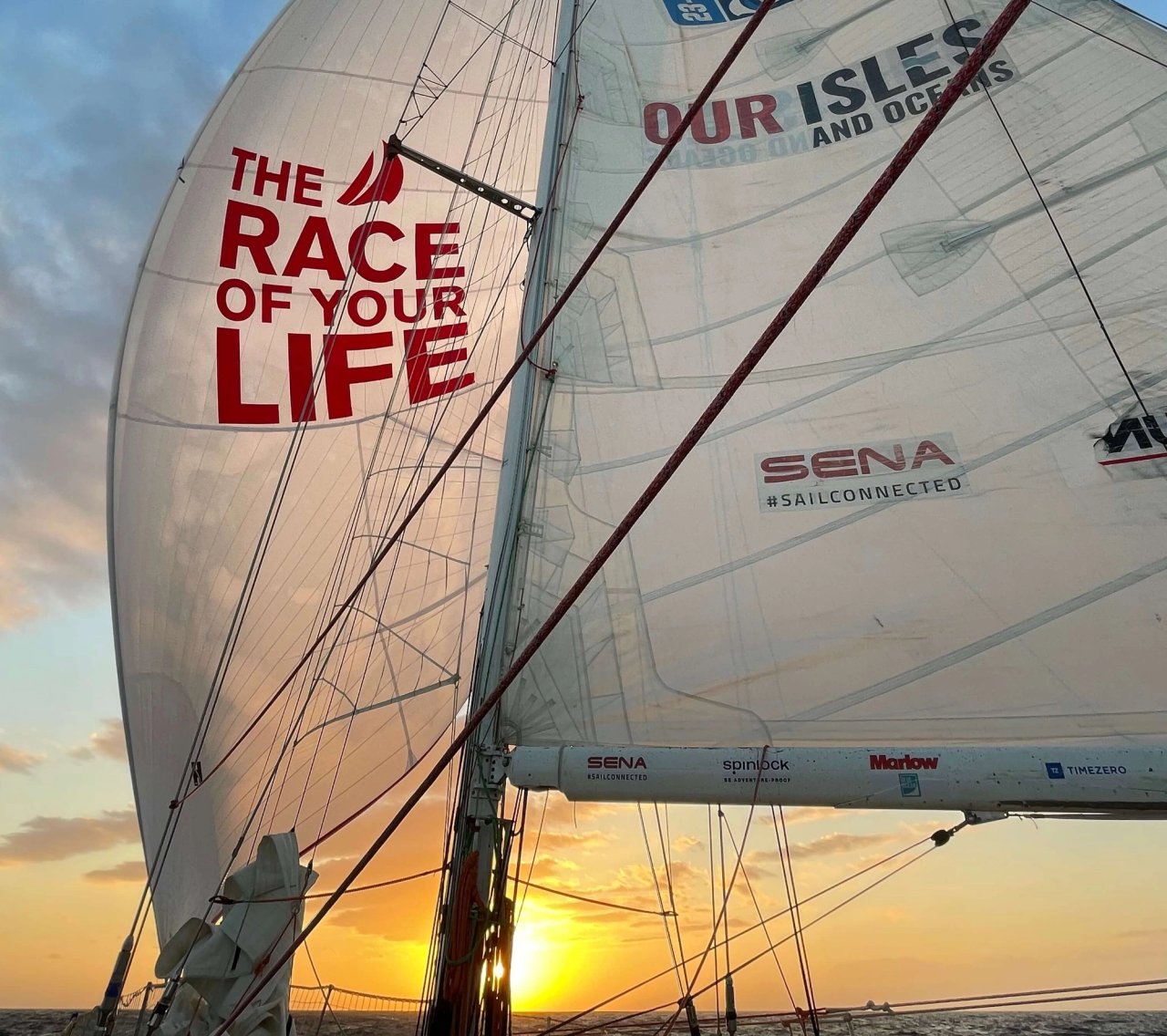Story
Racing the North Pacific: Lessons from Clipper 23/24

We stumbled toward past the mast, waves breaking over us. The wind was ice‑cold after two weeks at sea and my boots were flooded. Fear crept in, but there wasn’t time to hesitate. The Yankee had to come down before the squall hit.
Moments earlier I’d locked eyes with Dmitri. The fear between us was tangible. I’d never felt anything like waiting on that squall - would it slide past or would we have to face the bow and drop the sail before we were overpowered? We watched the dark cloud approach and waited for the skipper’s call.
We were already short‑handed. Two days earlier a rogue wave slammed Lorraine across the bow. Cracked ribs? Broken? We wouldn’t know until Seattle. She was out. We were quiet and tired and waiting.
For weeks the Pacific had been “kind,” or so the round‑the‑worlders said. Three days ago that ended. A storm rolled in and shook the boat and crew. We watched the horizon.
Max gave the call. The Yankee had to come down before we were overpowered.
Max, Dmitri, and I clipped in and moved forward, working at a heel around thirty degrees as the wind built. Water came over the bow every few seconds. Every step was a fight to the pulpit where we’d have to wrestle the sail down by hand.
How did I end up here? I was thirty‑three, with a few months of training, racing a 70‑foot yacht across the North Pacific.
A couple of years earlier I couldn’t have imagined it. But here I was - three months into the most intense, uncomfortable stretch of my life - facing the ocean and learning what I’m made of.
The route in: tropics to cold
I joined the Clipper Round the World Race in Airlie Beach, Australia. We headed north through the Solomons, around Papua New Guinea, Indonesia, and the Philippines. The heat was brutal. The doldrums were worse - days of barely any wind, sweat‑soaked nights, with sudden squalls to relieve you from the heat.
It was mental endurance: exhaustion, sleep‑deprivation, dehydration. By Vietnam I thought the worst was behind us.
## South China Sea: Zhuhai → Qingdao
The next leg - Zhuhai to Qingdao - was different. The team started to click. You could feel it. We moved from tropical heat into dry cold rolling down from over the steppe. We edged ahead of the fleet, made a couple of key navigation calls, and built the gap to almost a day.
Crossing first was a rush. First big win for our boat and in one of the most visible ports. It made the prior month’s misery worth it.
Victory, then a decision
Winning was incredible - and I was wrecked. In Qingdao I thought about stopping. Leaving on a high is tempting.
But the Pacific was the reason I’d signed up: cross the most isolated and intense ocean in the world. I decided to keep going.
The North Pacific
The winds cut through every layer - "waterproof" boots and gear became a community joke. The waves were big enough to make the deck feel like a staircase and the boat and crew got wrecked in every way possible (excluding actual shipwreck...).
But there tons of incredible moments - helming a 70‑footer down swells, spotting whales in open water, sharing spicy ramen soup packets in the galley (like 200 packets total on that leg) after a bad watch - those moments along with the tough ones were truly living.
The Pacific pushed me in ways I didn’t expect and brought clarity about what I care about. I don’t find growth when I'm comfortable sitting at home - I find it when I’m pushed past my limit and doing difficult things.
Calm inside chaos
There were quiet moments. Night watches under a full sky, the hull slicing through the ocean, a crew that started to feel like family because there wasn’t room to pretend otherwise.
The Pacific stripped me down to basics. Less stuff, no privacy, no comforts - just the job in front of you, being part of the machine that keeps you all alive, and the push of competition against the other 10 clipper yachts in the vast expanse you're racing against.
What I took home
I can handle anything I put my mind to and decide to undertake. Many of us never get a chance to push the limits of our endurance range or max out discomfort threshold for such a long period - and I feel lucky to have gotten to experience it and see what i'm made of. The once again showed me how wild and real life can be.
Stay in the loop
Stories from the field and manuals for the work - emailed only when something is worth your attention.
No spam. Unsubscribe anytime. Delivered via EmailOctopus.